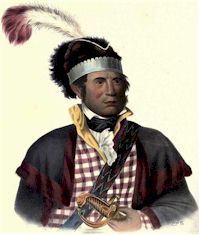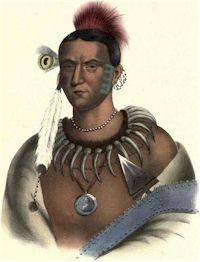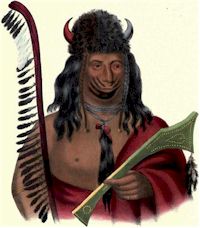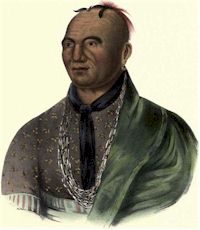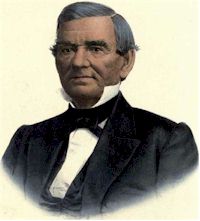Menawa, Creek Warrior
Menawa, also known as Hothlepoya or “The Crazy War Hunter,” was a prominent Creek warrior and chief of the Oakfuskee towns along the Tallapoosa River in Alabama. Renowned for his daring feats and raids on the Tennessee frontier during the early settlement period, he was infamous for his horse-stealing expeditions. Over time, his reputation grew, and he became widely known and feared by settlers. With the influence of Tecumseh in 1811, Menawa’s role evolved from a marauder to a significant figure in the Creek War, ultimately earning the name Menawa, meaning “The Great Warrior.” His life was marked by numerous battles, including the pivotal Battle of Horseshoe Bend, and he continued to play a crucial role in Creek politics, advocating against further cessions of territory to the United States. Menawa’s legacy is one of fierce bravery, strategic prowess, and a complex relationship with both his Creek heritage and the encroaching American settlers.

